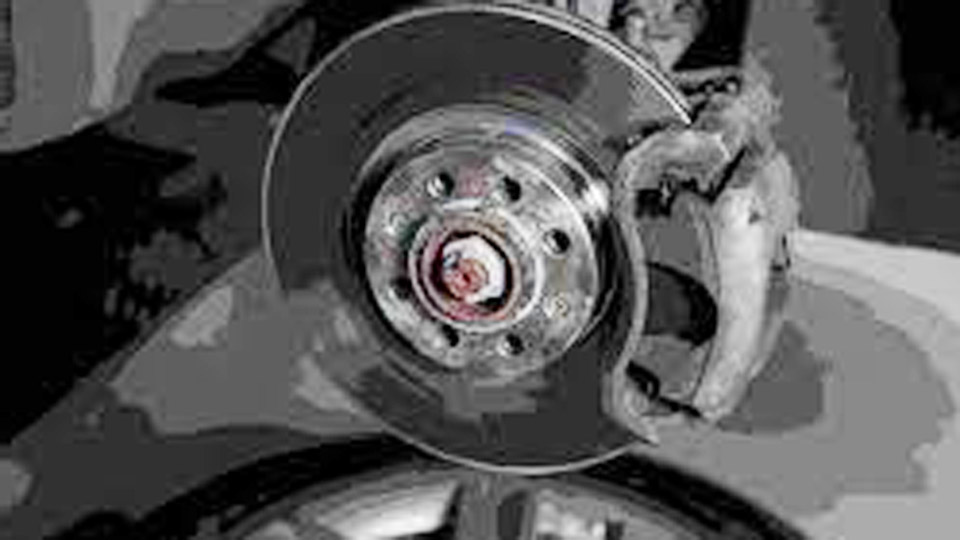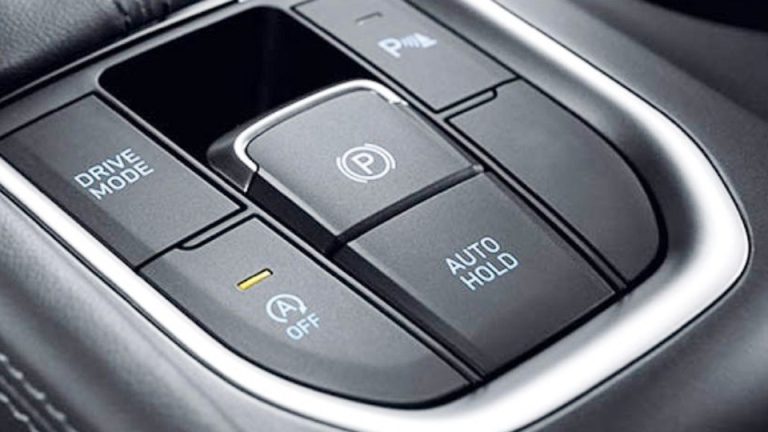I’ll never forget the first time I felt it—a nerve-rattling shake in the steering wheel of my 2014 Toyota Camry as I slowed down for a stoplight. It was a sunny afternoon, and I was driving home from work when the vibration hit, strong enough to make my hands jitter on the wheel. At first, I thought it was a one-off, but it happened every time I braked, especially at higher speeds.
I started asking myself, “Why is my car steering wheel shaking when I brake?” That question led me on a troubleshooting journey that taught me a lot about my car’s brake system. Turns out, warped brake rotors were the main culprit, and fixing them got my ride smooth again. Let me share my story, from diagnosing the issue to getting it fixed, so you can tackle a similar problem with confidence.

Image by heartautocare
A shaking steering wheel when braking is often caused by issues with the brake rotors, pads, or other front-end components. In my case, it took a trip to the mechanic, a few hours of work, and about $300 to resolve. I’ll walk you through what I learned, the steps I took, and how you can figure out what’s causing that unsettling wobble in your car.
Why the Steering Wheel Shakes When Braking
Before I dive into my experience, let’s talk about why a steering wheel might shake when you hit the brakes. In my Camry, braking relies on the front brake rotors and pads working together to slow the wheels. The rotors are metal discs that the brake pads clamp onto, and they need to be flat and smooth for even braking.
If the rotors are warped or uneven, they can cause vibrations that travel through the suspension and into the steering wheel. Other issues, like worn suspension parts or unbalanced tires, can also contribute, but they usually show up differently.
In my case, the shaking was most noticeable when braking from highway speeds, around 50–60 mph. It felt like the whole front end of the car was wobbling, and it got worse the harder I braked. If you’re feeling something similar, it’s likely related to the brake system or front suspension, but you’ll need to do some detective work to confirm.
My First Clue: The Shake and Other Symptoms
The shaking started gradually. At first, I noticed a slight vibration when braking lightly, but I brushed it off as road conditions. Over a couple of weeks, it got worse—strong enough to make my hands bounce on the steering wheel. I also heard a faint pulsing noise, like a rhythmic thump, when I slowed down. The car still stopped fine, but the shaking was unnerving, especially on long drives.
I started paying attention to when it happened. The vibration was strongest at higher speeds and didn’t occur when I was just cruising or turning. That ruled out tire issues, which usually cause shaking at specific speeds regardless of braking. I also checked the steering wheel for play when the car was stopped—it felt normal, so I suspected the brakes were the problem.
Diagnosing the Issue: My Troubleshooting Process
I’ve always been a bit of a DIY mechanic, so I started investigating in my driveway. First, I checked the tires to rule out imbalance or uneven wear. I jacked up the front end, spun the wheels by hand, and looked for wobbles or strange noises. Everything seemed fine, and the tires were evenly worn, so I moved on to the brakes.
I removed the front wheels to inspect the brake rotors and pads. The rotors looked shiny in some spots and dull in others, a sign of uneven wear. I ran my fingernail across the surface and felt slight grooves—not a good sign.
The brake pads were about half-worn, so they weren’t the issue. To confirm, I took the car for a short drive and braked gently from 40 mph. The shaking was still there, strongest when I pressed the pedal.
I suspected warped rotors but wanted a professional opinion, so I took the car to a trusted mechanic. He test-drove it and agreed the rotors were likely the culprit. He also checked the suspension components—like tie rods and ball joints—for wear, but they were solid. If you’re feeling a shake when braking, start with these checks to narrow down the cause.
Common Causes of Steering Wheel Shaking When Braking
Through my troubleshooting and talks with my mechanic, I learned the main reasons a steering wheel shakes when you brake:
Warped Brake Rotors: This was my issue. Uneven wear or overheating can warp the rotors, causing vibrations when the brake pads grab them.
Worn Brake Pads: If the pads are too thin, they can’t grip the rotors evenly, leading to shaking. Mine were okay, but it’s a common problem.
Loose or Worn Suspension Parts: Bad tie rods, ball joints, or control arm bushings can amplify vibrations. My suspension was fine, but it’s worth checking.
Unbalanced Tires: Imbalanced tires can cause shaking, but it usually happens at specific speeds, not just when braking. I ruled this out early.
Wheel Bearing Issues: Worn bearings can cause vibrations, but they often come with a humming or grinding noise. Mine were in good shape.
Here’s a table summarizing the causes I explored and how I checked them:
| Cause | Symptoms | How I Checked |
|---|---|---|
| Warped Brake Rotors | Shaking when braking, pulsing noise | Inspected rotors, confirmed by mechanic |
| Worn Brake Pads | Shaking, squealing, reduced stopping | Checked pad thickness (half-worn) |
| Suspension Issues | Shaking, loose steering, uneven tire wear | Mechanic inspected tie rods, ball joints |
| Unbalanced Tires | Shaking at specific speeds, not just braking | Spun wheels by hand, checked tread |
| Wheel Bearings | Shaking, humming, or grinding noise | Mechanic checked for play (none found) |
Fixing the Shake: My Repair Journey
Once the mechanic confirmed the rotors were warped, I decided to have them replaced rather than resurfaced. Resurfacing—also called turning or machining—can smooth out minor warping, but my rotors were too far gone, and new ones weren’t much more expensive.
The mechanic replaced both front rotors and installed new brake pads to ensure even wear. He also checked the brake calipers to make sure they weren’t sticking, which can cause warping.
The repair took about two hours. The total cost was $320—$150 for the rotors, $70 for the pads, and $100 for labor. I considered doing it myself to save money, but I didn’t have a lift or the right tools to torque the wheels properly. Plus, I wanted the job done quickly since I needed the car for my daily commute.
When I picked up the Camry, I took it for a test drive, braking from 60 mph to feel the difference. The shaking was completely gone, and the pedal felt smooth and responsive. The mechanic showed me the old rotors, which had visible hot spots and uneven surfaces. Seeing them made me glad I didn’t try to limp along with a resurface.
Challenges I Faced and Lessons Learned
This wasn’t a smooth process, and I hit a few snags. First, I ignored the shaking for a couple of weeks, thinking it wasn’t a big deal. That was a mistake—warped rotors can damage other brake components if left unchecked. If you feel vibrations, don’t wait to investigate.
Second, I didn’t realize how driving habits can contribute to rotor warping. I’d been braking hard on long downhill stretches, which overheated the rotors. My mechanic suggested easing into brakes and using engine braking on hills, which I’ve done ever since.
Third, I got lucky with my shop choice—one place quoted me $450 for the same job, with pricier rotors. Shopping around saved me $130.
Finally, I learned that regular brake maintenance can prevent issues. I hadn’t checked my brakes in over a year, and a quick inspection might’ve caught the warping early. Now, I inspect them every six months.
Factors That Affect Steering Wheel Shaking and Repair Costs
Several factors influenced why my steering wheel was shaking and how much it cost to fix:
Severity of Warping: My rotors were badly warped, requiring replacement. Minor warping might only need resurfacing, which costs $50–$100 less.
Car Make and Model: My Camry’s front brakes were straightforward to access, keeping labor costs down. SUVs or luxury cars might take longer, increasing costs.
Mechanic’s Rates: Labor in my area was $100 per hour. In bigger cities, rates can hit $150, pushing the total closer to $500.
DIY Feasibility: Replacing rotors and pads yourself can save $100–$200, but you need a jack, stands, and torque wrench. I opted for a pro to avoid mistakes.
Tips for Handling a Shaking Steering Wheel When Braking
Based on my experience, here are some practical tips to deal with a shaking steering wheel:
Check the Brakes First: Jack up the car and inspect the rotors for uneven wear or grooves. If they’re shiny in spots or grooved, they’re likely warped.
Test Drive Carefully: Note when the shaking happens—only when braking or at specific speeds. This helps rule out tires or suspension issues.
Get Multiple Quotes: Call three shops to compare prices. Ask what parts they use and if they’ll check the calipers and suspension.
Maintain Your Brakes: Inspect your brakes every six months for wear. Clean caliper pins and check pad thickness to prevent warping.
Drive Smart: Avoid hard braking on long downhill stretches. Use engine braking to reduce heat buildup in the rotors.
Frequently Asked Questions
Why is my car steering wheel shaking when I brake?
In my Camry, the shaking was caused by warped brake rotors, which vibrated when the pads clamped down. Other causes could be worn pads, loose suspension parts, or unbalanced tires.
Can I drive with a shaking steering wheel when braking?
I drove with the shaking for a couple of weeks, but it’s not safe. Warped rotors can reduce stopping power and damage other brake components. Get it fixed quickly.
How much does it cost to fix a shaking steering wheel?
My repair cost $320 for new rotors and pads. Costs can range from $150 for resurfacing to $500 for replacing rotors, pads, and labor, depending on your car.
Can I fix a shaking steering wheel myself?
I considered replacing the rotors myself but lacked the tools. If you have a jack, stands, and a torque wrench, it’s doable. Watch videos for your car model to avoid mistakes.
How can I prevent my steering wheel from shaking when braking?
I now check my brakes every six months and avoid hard braking on hills. Regular maintenance, like inspecting rotors and pads, can catch warping early and keep your brakes smooth.




